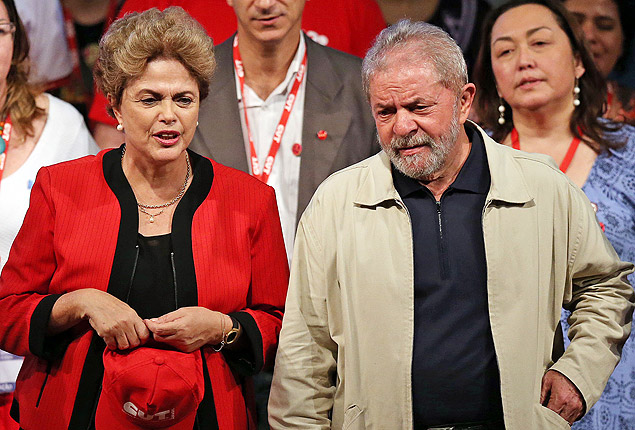
In the Workers’ Party’s (PT) 13 years in power, Brazil experienced income distribution unlike that of any other period in history recorded by the Brazilian Institute for Geography and Statistics (IBGE). Everyone won. The poorer you were, the better the outcome.
There was a 129 percent real increase (above inflation) in the income of the poorest 10 percent. In the top 10 percent, a 32 percent increase.
At the bottom of the pyramid, social spending through programs such as Bolsa Familia and Welfare played a strong role. But the work was crucial for the improvement of income at the time.
In contrast, Brazil never whittled away its public accounts so quickly; and in such a structured manner. A fact which has now almost led us into an economic depression and new social backlash.
Income distribution in the last 13 years is comparable to that of the european social democracies of the post World War II era. Nevertheless, only 31 percent of Brazilians feel that their lives improved in the 13 years that the Workers’ Party held the presidency, according to a new Datafolha study.
The combination of the acute economic crisis, corruption charges, arrest of Workers’ Party members and political fragility have led the majority to believe that life only got worse (26%) or stayed the same (42%).
Only 24 percent see the Workers’ Party’s time in the presidency as a great/good thing. That is a lot less than those who see it as awful/bad (35%) or OK (40%).
Folha spoke to 13 specialists about the 13 years that the PT, currently facing a threat of impeachment, occupied the presidency.
A good summary would be that the Workers’ Party reaped what it did not sow: by scorning structural reforms while it had popular support and was riding a wave of commodities until 2008, it plastered close to 75 percent of the government’s non-financial spending, with no room to maneuver.
“Up to this point, even with inflation and unemployment sharply higher, the per capita household income and its distribution are near the top. But we are at the edge of the cliff, it’s before us”, says Marcelo Neri, Director of the Social Policy Center at the Getulio Vargas Foundation in Rio and former Chief Minister of the Secretariat for Special Affairs of the Presidency of the Republic.
Meanwhile, the Pnad (National Sample Survey of Households) still showed a “surprising” decline in inequality and real income growth of 3.3% in 2014. The Pnad Continued in 2015 reveals stable inequality and a 0.96% shrinking in the income for the third trimester.
“That means that the general suffering of the population is still to come”, says Neri.
Just as employment was crucial in the reduction of poverty, it will have a negative impact now.
For economist Gabriel Ulyssea, from PUC-Rio, the exuberance of the labor market under the Workers’ Party lacked structural change.
“There was a strong increase in credit for consumption, housing and businesses. To make loans, formalization was the requirement. That was, therefore, only a cyclical change.”
In the Workers’ Party’s 13 years, the volume of credit in Brazil leaped from 25 percent to 60 percent of the GDP. Coinciding with the end of that cycle of strong expansion, the country lost more than 1.2 million formal jobs during the last 12 months.
The acceleration of state credit and social spending are seen as crucial to the current imbalance.
“The global crisis of 2008 made the government act fast. The problem, after, came from insisting on the pressure to consume”, says Luiz Gonzaga Belluzzo, from Unicamp, and one of President Dilma Rousseff’s former professors.